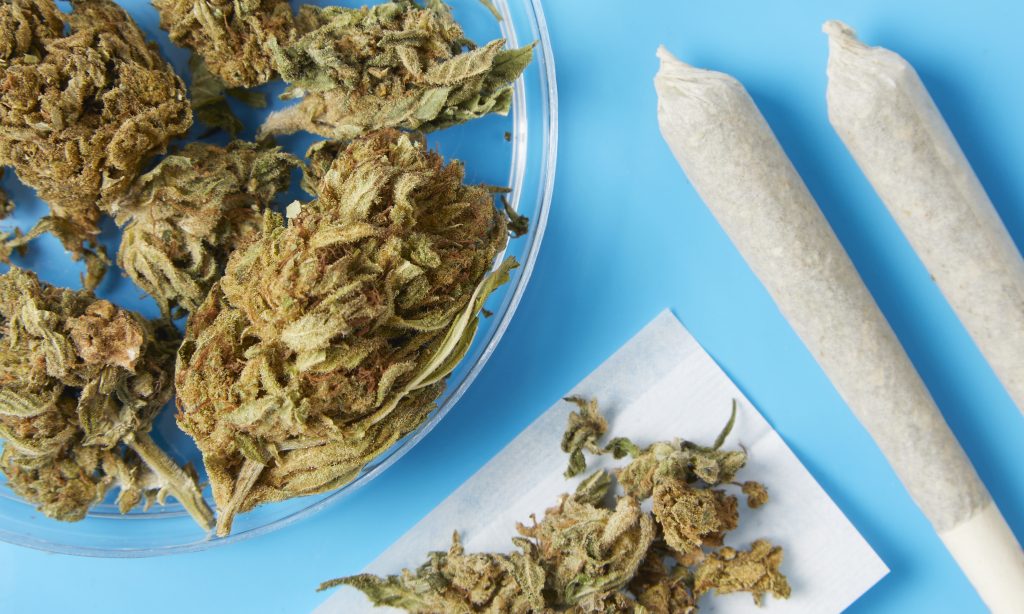
Hospital stays prompt the FDA to issue a Delta-8 warning
On Tuesday, the Food & Drug Administration (FDA) issued a warning about Delta-8-THC, stating that the product has not been rated or approved by the agency. Granted, the FDA’s opinion on anything cannabis-related is received with a healthy dose of skepticism. The FDA has still not made a decision on CBD after years of discussion and research.
The 2018 Farm Bill, which essentially legalized hemp, specifically called for the exclusion of Delta-9-THC. The manufacturers picked up on this and decided that Delta-8 could slip through the loopholes as it was not mentioned in the bill. Delta-8 THC is one of over 100 cannabinoids naturally produced by the cannabis plant.
It doesn’t have the potency of a delta-9 high, but consumers say it makes a slight buzz. However, Delta-8 is not easy to extract from the plants and is therefore typically made from hemp-derived cannabidiol (CBD). As a result, the FDA is concerned that these products will be labeled as hemp-derived and some consumers may think that there are no psychoactive effects like other hemp products. The products are also marketed with therapeutic properties which the FDA says are unsubstantiated claims.
Photo by Animaflora / Getty Images
Unwanted side effects
The reports of undesirable side effects are worrying. In the alert, the FDA said it had received adverse event reports from both consumers and law enforcement agencies from December 2020 to July 2021, describing 22 patients who consumed Delta-8-THC products and 14 who went to a hospital or emergency room for treatment. Nineteen of these patients reported having eaten delta-8 THC food products. Adverse events included vomiting, hallucinations, difficulty standing, and loss of consciousness.
RELATED: How To Tell If Delta-8 THC Is Right For You
Additionally, the FDA announced that national poison centers received 661 cases of exposure to delta-8 THC products between January 2018 and July 31, 2021, of which 660 occurred between January 1, 2021 and July 31, 2021, the 661 Exposure cases:
- 41% were unintentional exposure to delta-8 THC and 77% of these unintended exposures were in pediatric patients under the age of 18.
- 39% involved pediatric patients under the age of 18
- 18% required hospital stays, including children who had to be admitted to the intensive care unit (ICU) after exposure to these products.
Photo by Thanasis / Getty Images
Chemicals added
The FDA found that the natural amount of Delta-8-THC in hemp is very low and that additional chemicals are also needed to convert other cannabinoids in hemp, such as CBD, to Delta-8-THC through a synthetic conversion. The FDA fears that some manufacturers could use potentially unsafe household chemicals to make Delta-8-THC through this chemical synthesis process.
RELATED: RIP Delta-8 THC: Why States And DEA Want It To Be Banned
Additionally, additional chemicals can be used to change the color of the final product. Since these products are not regulated, Delta 8 THC products can also be manufactured in unsanitary environments.
Targeted children
The FDA has also advised that the products appear in packaging that is attractive to minors. “These products can be purchased online and at a variety of retailers, including convenience stores and gas stations, where there may not be age restrictions on purchasing these products. As discussed above, there have been numerous warnings from poison control centers involving pediatric patients exposed to products containing Delta-8-THC. In addition, animal poison control centers have seen a sharp increase in accidental exposure of pets to these products. “
This article originally appeared in the Green Market Report and was republished with permission.


Post a comment: